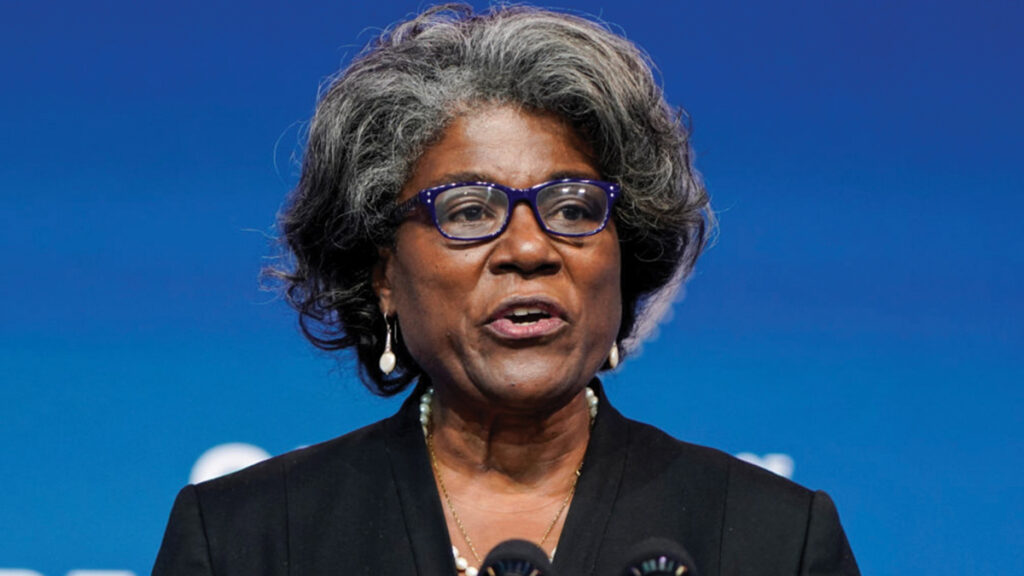‘Relationship sometimes rests on coerciveness, indebtedness and not in partnership’ -US Envoy
PHILLIMON MMESO
editors@thepatriot.co.bw
The emergence of China as a force in Africa seems to continuously unsettle the United States of America (USA) as the super powers tussle over the control of Africa.
During the Africa Regional Media Hub press briefing recently the US Ambassador to the United Nations Linda Thomas-Greenfield said she is worried about Africa’s relationship with China. “It worries me as I look at Africa’s relationship with China, for example, that that is a relationship that sometimes rests on coerciveness, indebtedness, and not in partnership,” she said.
Though she didn’t clarify on what she meant by coerciveness, there is a concern that through the ‘One China’ Policy which most African countries are supporting, they cannot criticize Chinese government especially on its human rights abuses. Regarding indebtedness, China has become Africa’s largest trading partner. By 2019, Beijing was financing one in five African infrastructure projects and constructing one in three.
At present, the countries in Africa with the largest Chinese debt are Angola ($25bn), Ethiopia ($13.5bn), Zambia ($7.4bn), the Republic of Congo ($7.3bn), and Sudan (6.4bn).
Thomas-Greenfield said as the US they want their message to Africa to be completely different to reflect that their partnership with Africa is one in which they focus on the needs of the people and on opportunities to build capacity across Africa. “We are truly, truly committed to partnering with the continent of Africa, every single country, and partnering with the people of Africa to bring hope and prosperity to the people of Africa. It’s a work in progress. It requires all of us. The United States can’t do it alone. We have to do it in consultation and support of the African people, and we do it for the African people,” said the veteran U.S. diplomat.
International Relations expert Simon Mcenisi observed that the US and EU are very worried about Sino-Africa relations because their influence in Africa is now minimal. He said through China’s Belt & Road Initiative (BRI), Beijing has managed to penetrate most African countries. BRI is a global infrastructure development strategy adopted by the Chinese government in 2013 to invest in nearly 70 countries. “The current US government administration has a lot to do in order to win back African countries because the previous administration of Donald Trump which referred to Africa as ‘shithole countries has strained relations,” he observed.
He said it was evident that African countries are comfortable with relationship with China when they pushed back against pressure from the US to drop Huawei in the provision of internet and ICT networking.
Joe Mucheru, Kenya’s Cabinet secretary for Internet Communications Technology, called U.S. pressure to drop Huawei “political postures”; South African President Cyril Ramaphosa said the U.S. is “jealous” of the corporation’s advances in 5G. “The US might be able to win over some African leaders but not all of them at once because won’t be able to provide funding to them with the speed and efficiency of funding as provided by the Chinese state banks,” said Mcenisi.
China has four overarching strategic interest in Africa, cardinal one being access to natural resources particularly oil and gas. It has invested in the oil sectors in countries such as Angola, Nigeria and Sudan. Africa has also provided China with a huge market for Chinese exported goods.
